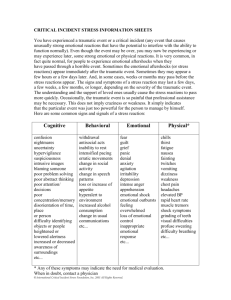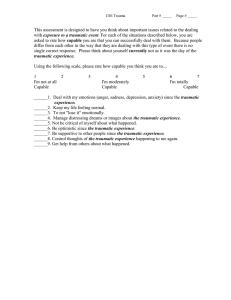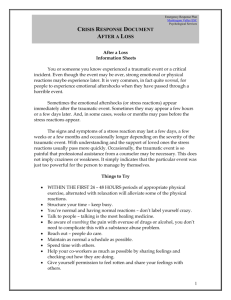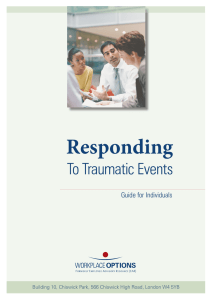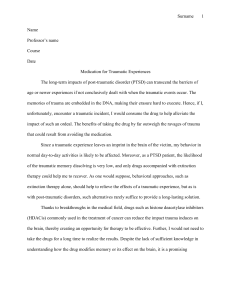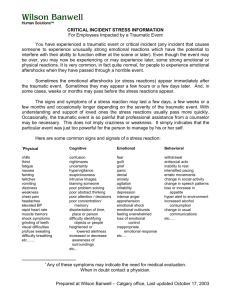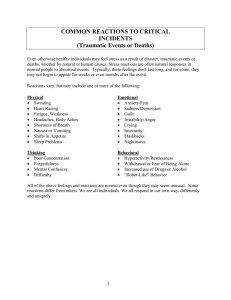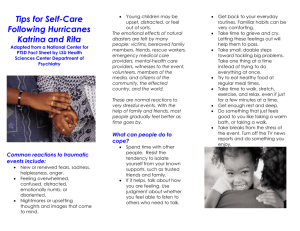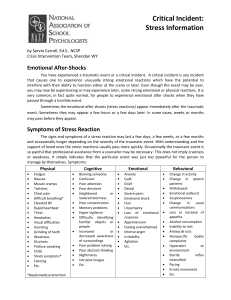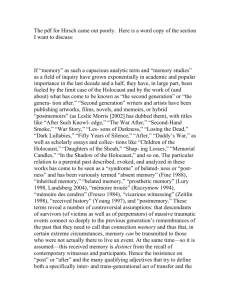Brief checklist of trauma symptoms
advertisement
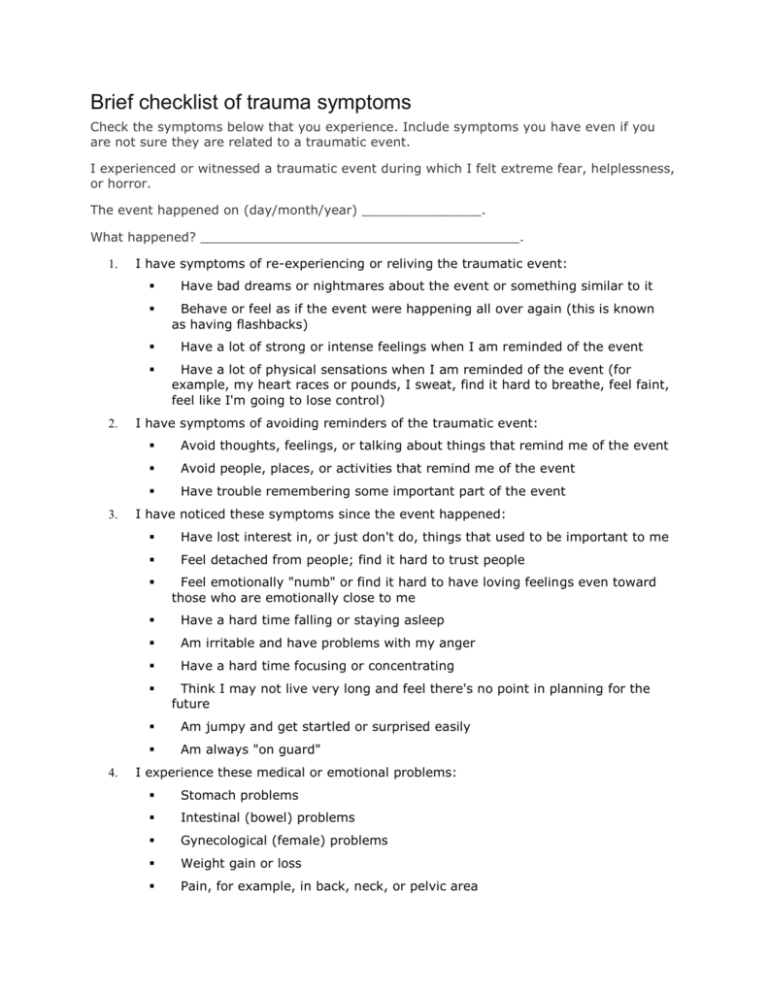
Brief checklist of trauma symptoms Check the symptoms below that you experience. Include symptoms you have even if you are not sure they are related to a traumatic event. I experienced or witnessed a traumatic event during which I felt extreme fear, helplessness, or horror. The event happened on (day/month/year) _______________. What happened? ________________________________________. 1. I have symptoms of re-experiencing or reliving the traumatic event: Have bad dreams or nightmares about the event or something similar to it Behave or feel as if the event were happening all over again (this is known as having flashbacks) Have a lot of strong or intense feelings when I am reminded of the event 2. 3. I have symptoms of avoiding reminders of the traumatic event: Avoid thoughts, feelings, or talking about things that remind me of the event Avoid people, places, or activities that remind me of the event Have trouble remembering some important part of the event I have noticed these symptoms since the event happened: Have lost interest in, or just don't do, things that used to be important to me Feel detached from people; find it hard to trust people Feel emotionally "numb" or find it hard to have loving feelings even toward those who are emotionally close to me Have a hard time falling or staying asleep Am irritable and have problems with my anger Have a hard time focusing or concentrating 4. Have a lot of physical sensations when I am reminded of the event (for example, my heart races or pounds, I sweat, find it hard to breathe, feel faint, feel like I'm going to lose control) Think I may not live very long and feel there's no point in planning for the future Am jumpy and get startled or surprised easily Am always "on guard" I experience these medical or emotional problems: Stomach problems Intestinal (bowel) problems Gynecological (female) problems Weight gain or loss Pain, for example, in back, neck, or pelvic area Headaches Skin rashes and other skin problems Lack of energy; feel tired all the time Alcohol, drug, or other substance use problems Depression or feeling down Anxiety or worry Panic attacks Other symptoms such as: ______________________________ Summing it up If you checked off some of the symptoms above, it is important for you to let your health care provider know. This information helps providers plan your medical treatment. It can also help them connect you with services you may need. If you think you may have PTSD, print this checklist, fill it out, and take it to a health care provider, or someone you trust.

